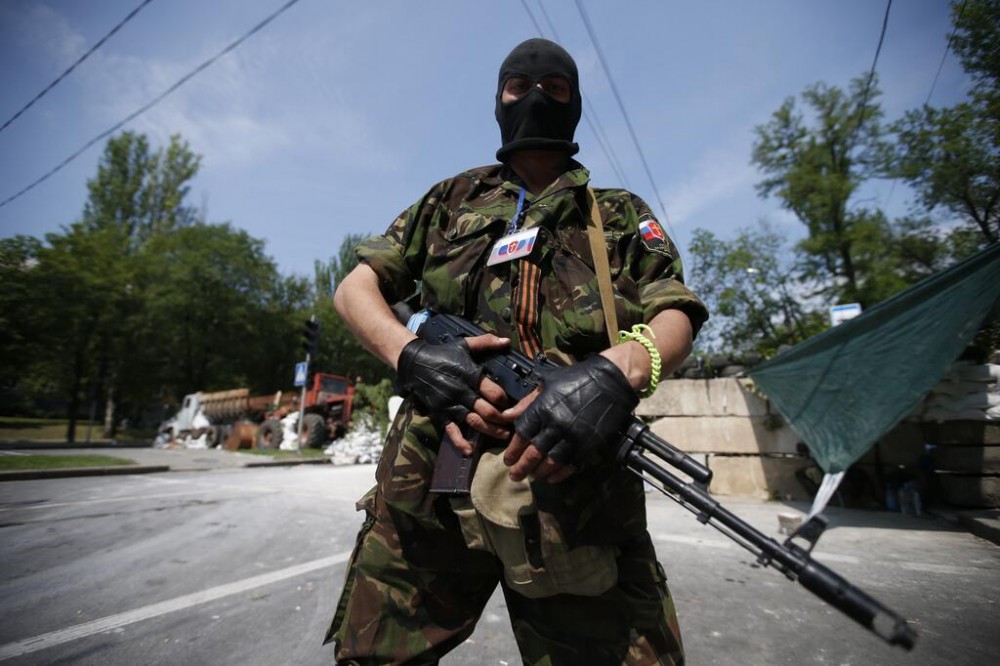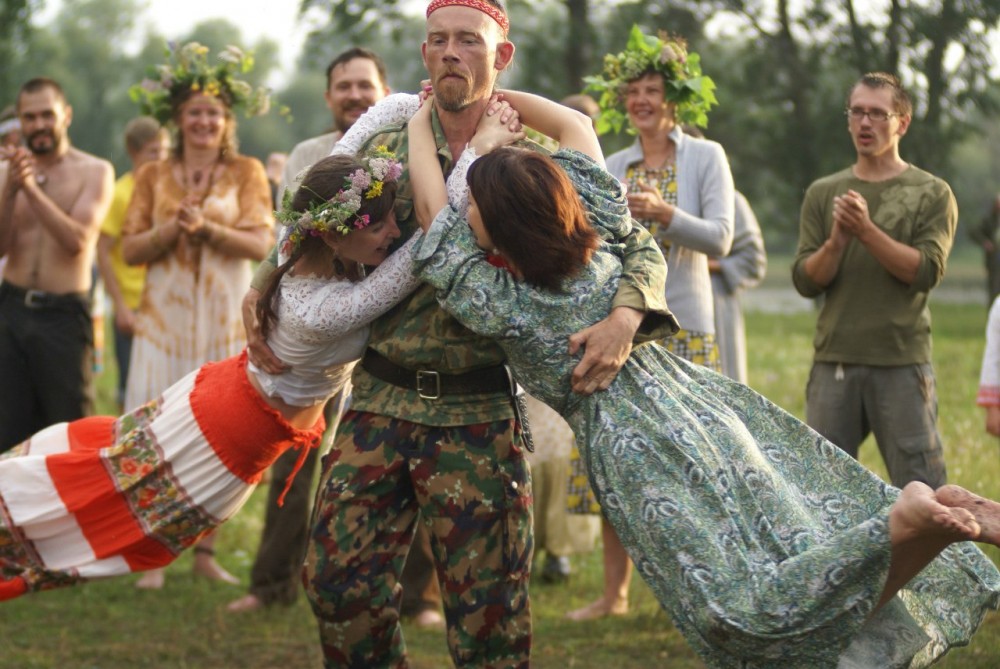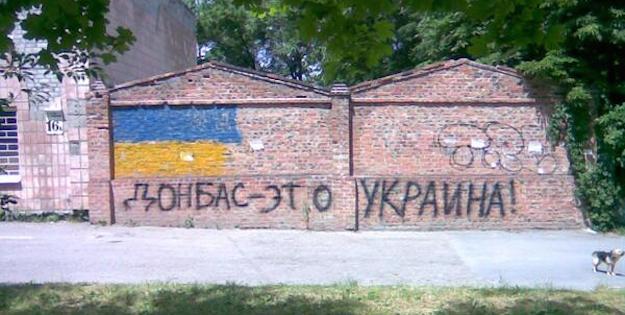With the day of parliamentary elections approaching, the leaders of political powers which have something or other to do with Maidan, and candidates from them are becoming more active and self-confident: they say, we will win and ensure democratic and European development of Ukraine. They say that thanks to the vote, lustration will take place (Petro Poroshenko: “Elections are the best form of lustration), the new Verkhovna Rada will work actively to execute the program of presidential reforms, and former regionals and company will play the part of benign opposition, which will demonstrate to Europe and the US the democracy of the current government. If not all, the majority of ‘Maidan powers’ in general share this position.
Meanwhile we should glance at the advertising for the Opposition Block to see that everything is not so simple. This electoral campaign proves that the team formed of oligarchs, Lenin protectors, corrupt officials and Kremlin agents will never become ‘benign opposition’: “The government threatens the livelihood of simple Ukrainian citizens! We will restore! We will protect!” We are talking about the powers of revenge which do not hide their goal: to restore the criminal-totalitarian dictatorship in the country. Well, the methods of political action are traditional: buying votes using meal packs and money from ‘simple citizens,’ i.e. the voters, misinforming and intimidating the population, ‘antifascism’ under Stalinist mottos etc.
‘Maidan parties’ will fight against each other?
In other words, the revenge powers are quite serious, they are financed and represented by people with billions of net worth; these powers are mostly betting on majority districts: it is much easier to ‘enchant’ the voters with both promises and ‘gifts’ from the candidates and ‘charitable funds,’ without sparing resources to beat the five-percent barrier in the national district.
Meanwhile it looks like the leading political parties that are tied to Maidan are leading a very risky game in these districts, to say the least. Better said, games: as the tactics and strategies they employ are significantly different. For example, Civil Position nominated only 10 majority candidates, having reasonably bet on the list in the national district. Svoboda has candidates in 46 districts. People’s Front, on the contrary, nominated its people in a vast majority of majority districts, Batkivshchina, Petro Poroshenko’s Block and the Radical Party did the same (general elections will be held in 213 out of 225 nominally existent electoral districts). The candidates were only accorded by Petro Poroshenko’s Block and Svoboda. Civil Position will also possibly become a de facto competitor for other political powers in majority districts. Which means that the electorate which doesn’t want to return to the old and stands against the regionals, communists and pro-Russian oligarchs, will be ‘smothered’ across three-four or even five (as in 19 districts Svoboda and Poroshenko’s block nominees coincide) candidates. As such Maidan’s opponents will be able to win the elections in majority voting with 22-25% of the votes.
In addition, experts think that there are certain agreements between Petro Poroshenko’s Block and a number of current members of the Parliament and politicians (regionals and those close to them). As there are no opponents on part of the President’s block to Oles Dovhy, Oksana Kaletnyk, Volodymyr Lytvyn, Vitaly Khomutynnyk, Oleksandr Feldman, Oleksandr Hereha and some others, less-known, but interesting characters. These and other similar facts give journalists grounds to claim: “Petro Poroshenko’s block ‘gifted’ majority districts to Baloha, Lytvyn and Dovhy.”
Under such circumstances the possibilities of a big number of ‘self-nominees,’ who had been part of the Party of Regions or the CPU before March, joining the Verkhovna Rada are growing dramatically. In 62 districts there are candidates who in 2012 won there and became member of the Parliament after having been nominated and supported by the Party of Regions. In reality there are no less than 180-200 former and current regionals (although, can the really stop being regionals?) running for the Rada, which directly represent Kremlin interests in Ukraine and has very good financial and organizational resources.
Correct the mistakes that still can be corrected
The main trouble, to my mind, today is the President and his associates’ conviction that they have already won the parliamentary elections. Poroshenko’s Block already sees itself as the ‘government party,’ and if not a universal one, then in coalition with just one or two ‘junior partners.’ Therefore they can give dozens of districts to buy out ‘the necessary people,’ play ‘lustration through voting’ and ‘tolerance to opposition.’ As such, survey results show the indisputable leadership on the Block’s part: for example, Social Monitoring center gives it almost 40%. However, this is among those who will come to the elections and who knows whom they will vote for. But what if the situation changes dramatically? Mass terrorist acts, violent provocations, strong colds before the heating is one – there are numerous possible emergencies. And then the rating of the party which is directly associated with the current government may fall even by half.
Let us remember the terrorist acts committed by Islamists in Madrid on March 11, 2004, when almost 200 people died and over 200 were injured: they happened three days before the parliamentary elections and brought victory to the outsiders at the time, the socialists, who strived to prevent the country from fighting international terrorism. And now: 63% of those surveyed by Social Monitoring are for maintaining the ceasefire in Donbas at any cost. Such attitudes, by the way, have been cultivated by the president and his team for the past 1,5 months. For example, when presenting Oleksandr Kikhtenko as the new head of the Donetsk Oblast State Administration, Poroshenko emphasizes: “Peace and order are the tasks I pose to the new governor, General Kikhtenko.” What about Ukraine’s territorial integrity? Is it secondary now? In any case, pacifist attitudes of the majority of Ukrainians are a time bomb for the parliamentary elections set up by the president’s team and its advisors.
I am not even saying that if in the second half of the 1940s in Norway the collaborationist National Unity had been allowed to run in the elections, in France – the similar People’s Party of France and the NSDAP in Germany, Europe would be totally different now, not democratic or economically successful. What is more: it is not by accident that in Nazi-free Wester Germany after 1945 the Parliamentary elections happened according to party lists, without ‘independent’ candidates, as the latter were mostly Hitler’s supporters. So ‘lustration through voting’ is a very unfortunate and in constructive idea, especially under conditions of Russian aggression and support for anti-Ukrainian forces and actions from outside.
However, there still exists a (theoretical) possibility to insure Ukraine from the factual comeback on part of anti-European neototalitarian powers. It is necessary to determine single candidates in majority districts from all ‘conscious’ Maidan political powers. Then such candidates, in the battle against the revenge powers, will have good chances even in some districts in Donetsk and Luhansk oblasts. Yulia Tymoshenko is calling for this, for example (“A single candidate from all democratic powers is a wonderful move and I am ready, as a party leader, to support this, in a union with all democratic powers”). However, is this statement not just electoral rhetoric? Just like similar statements on part of leaders of ‘Svoboda,’ ‘Civil Position’ and the ‘People’s Front’?
In any case, regionals and those akin to them will definitely not gain the majority, but they are able to gain no less than 150-160 seats in the Rada under certain circumstances. Which means that on the side of the President and more or less progressive powers there will be no Constitutional Parliament majority, but a whole number of committees will end up in the hands of Kremlin agents. And that the government majority will have to be created from everyone who is not a regional or a communist. Or maybe someone from the presidential circle does dream of creating a new government without ‘Maidan parties’ together with the hastily painted-over part of the regionals?





